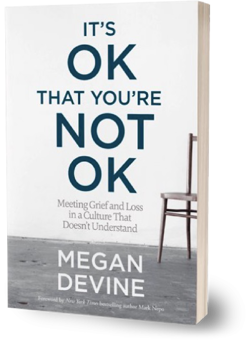Resources for Supporters
You want to be supportive... but this stuff is awkward.
Don't overthink it! Start here.

We've inherited unrealistic ideas about grief - and it's not doing anyone any favors. When someone's hurting, we think the right thing to do is to cheer them up. Get them through to the other side... and fast. Bad news: that doesn't work. Good news: being truly supportive is easier than you think.
Being a supportive person isn't about "fixing" someone. It's about sticking with them when life falls apart. There are simple things you can do & say to make things better, even when they can't be made right. You don't have to do this perfectly: you can be awkward the entire time.
